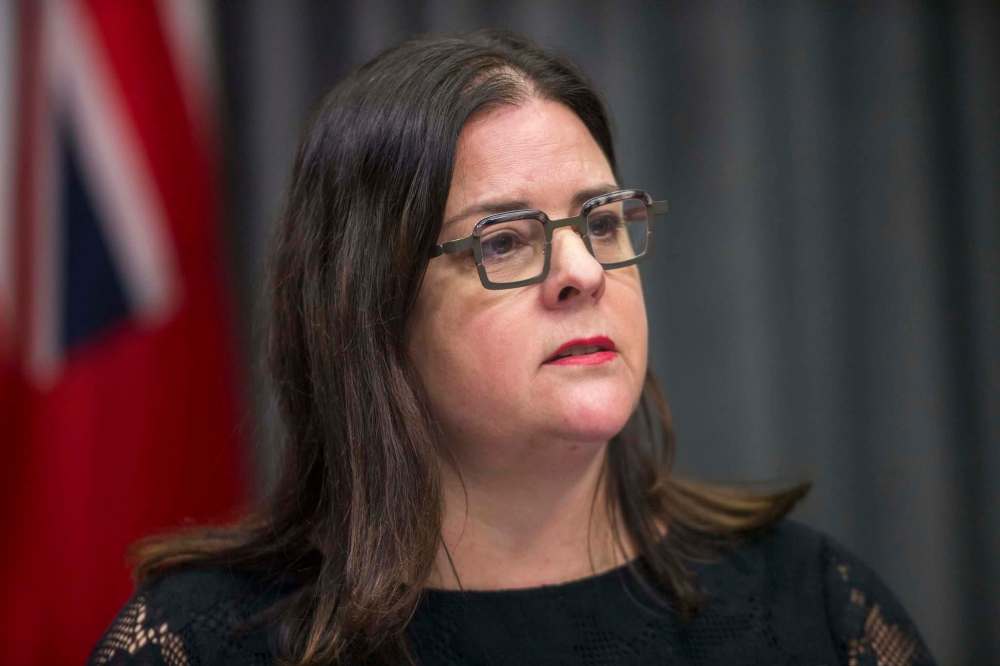Deeper examination of tragedy required
Read this article for free:
or
Already have an account? Log in here »
To continue reading, please subscribe:
Monthly Digital Subscription
$0 for the first 4 weeks*
- Enjoy unlimited reading on winnipegfreepress.com
- Read the E-Edition, our digital replica newspaper
- Access News Break, our award-winning app
- Play interactive puzzles
*No charge for 4 weeks then price increases to the regular rate of $19.00 plus GST every four weeks. Offer available to new and qualified returning subscribers only. Cancel any time.
Monthly Digital Subscription
$4.75/week*
- Enjoy unlimited reading on winnipegfreepress.com
- Read the E-Edition, our digital replica newspaper
- Access News Break, our award-winning app
- Play interactive puzzles
*Billed as $19 plus GST every four weeks. Cancel any time.
To continue reading, please subscribe:
Add Free Press access to your Brandon Sun subscription for only an additional
$1 for the first 4 weeks*
*Your next subscription payment will increase by $1.00 and you will be charged $16.99 plus GST for four weeks. After four weeks, your payment will increase to $23.99 plus GST every four weeks.
Read unlimited articles for free today:
or
Already have an account? Log in here »
Hey there, time traveller!
This article was published 09/03/2021 (1735 days ago), so information in it may no longer be current.
If members of the provincial government need a reminder of the scale of the pandemic tragedy within the Maples Long Term Care Home, they need only look around and count the number of seats within the legislative chamber.
Manitoba has 57 MLAs. The COVID-19 death toll at the Maples home is 56.
The stark image is worth pondering. That 56 victims of the virus died in a single care home should motivate the government to pinpoint accountability for the deaths. It should also prompt government reflection on the larger context of whether for-profit homes — Maples is owned by Revera Inc. — are in the best interest of vulnerable Manitobans.
Manitoba Minister of Health and Seniors Care Heather Stefanson last Friday released a plan responding to the Maples deaths but, as expected, her plan continues the provincial government’s pattern of dodging two crucial questions: Who’s responsible for the 56 deaths? And would Manitobans be better served if all long-term care homes were public?

It was unsurprising Ms. Stefanson avoided those hot-button questions, even though they are vitally relevant and of abiding interest to Manitobans, because the government in which she serves has in the past declined to accept responsibility for the Maples plight. The minister’s plan is based on 17 recommendations from a review the province commissioned and restricted to terms with which the government is comfortable.
The plan, which Ms. Stefanson says is “looking to the future,” will review the licensing of care homes, form a standard pandemic plan for such homes and increase the number of unannounced inspections.
The review speaks of rebuilding trust with families who complained of scant communication as their loved ones died. Such talk about trust is too little, too late, however, for some of the Maples victims’ families, who announced last week they are organizing a volunteer task force to probe the Maples outbreak. They are also calling for a public inquiry into the matter, echoing a demand made earlier by the Opposition NDP.
The families are trying to do what the government won’t, but should: probe deeply to determine responsibility for the Maples calamity, providing a bedrock of facts on which appropriate changes to practices and policies can be built.
The suspicion is that the for-profit ownership of Maples was a major factor. The review found a critical shortage of trained staff, which many people attribute to the corporation’s goal of maximizing profit by minimizing staff costs.
Like it or not– and it seems clear the Manitoba government does not — the conversation about whether to abolish for—profit homes is ongoing across Canada.
Such speculation is backed up by a national report released last December by the Canadian Medical Association, focused on the risks of COVID-19 deaths in care homes. It found outbreaks were far more likely in for-profit homes than in publicly run homes. The death rate was nearly double in for-profit homes.
Many voices, including the federal NDP, have called for the system of for-profit care homes to be abolished, bringing all such care under the Canada Health Act and making it federally regulated. Such advocates typically summarize their distrust of private care homes with emotional statements such as, “People shouldn’t profit from the deaths of seniors.”
Like it or not — and it seems clear the Manitoba government does not — the conversation about whether to abolish for-profit homes is ongoing across Canada. Manitoba should initiate an independent, impartial study of the issue of for-profit care homes in this province and invite public feedback.
It would be an apt way to honour the 56 Manitobans who perished while mistakenly trusting that the care they were paying for would be compassionate and competent.















